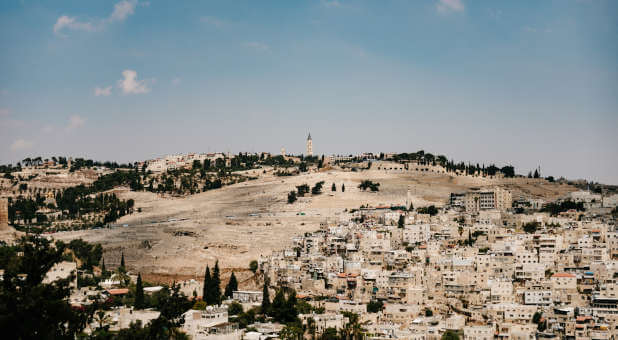A standard stop for any Christian tour group in Jerusalem is the Mount of Olives. Because it is higher than the Temple Mount, it provides a spectacular view of the platform where the temple used to stand, as well as all of Jerusalem.
The view is absolutely breathtaking and fills one with awe.
The Mount of Olives is so named because it used to be covered with olive groves. The name Gethsemane is derived from the original Hebrew for “olive press,” and it was at one of the olive presses there, probably placed inside a cave, where Jesus went to pray three times the night of his arrest.
The Scriptures provide deep significance for Jesus’ last days spent on the Mount of Olives, as well as his ascension from there. King David wept there, as did Jesus. The prophet Ezekiel described scenes of the glory of God ascending from there, and the prophet Zechariah envisioned the Lord coming there at the end of days.
This holy hill, therefore, carries great significance within Judaism. It is expected that when the Messiah comes, the resurrection of the dead will begin there. So, it has been a popular burial place for over 3,000 years, and there are over 150,000 gravesites there today.
Join me for this week’s Out of Zion podcast entitled Jesus’ Resurrection and Return when I wrap up the 3D Jesus series by explaining the significance of Jesus’ ascension from the Mount of Olives. We will also talk about the resurrection of Jesus and where His empty tomb is today. Listen in for answers and what all this means for you! {eoa}
Dr. Susan Michael is USA director of the International Christian Embassy Jerusalem and host of the Out of Zion podcast.














































